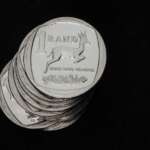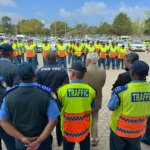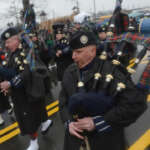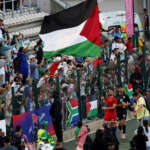A Closer Look at South Africa
South Africa Flag

South Africa Formation Date
The Union of South Africa was formed on May 31, 1910.
South Africa Capital Name
Pretoria
South Africa Neighbours
Exploring South Africa
South Africa: A Vibrant Nation of Diversity and Rich Culture
South Africa, located at the southernmost tip of the African continent, is a country known for its diverse landscapes, rich history, and vibrant culture. It is often referred to as the "Rainbow Nation" due to its multiethnic society and has become a popular destination for tourists seeking adventure, cultural immersion, and breathtaking scenery. In this article, we will delve into the many facets of South Africa, from its geography and history to its politics, economy, and unique culture.Key Takeaways
- South Africa is a country located in the southernmost part of Africa. - It is known for its diverse landscapes, rich history, and vibrant culture. - The country has 11 official languages and a multiethnic society. - South Africa has a complex political history but has made significant strides towards democracy in recent years. - The economy is one of the largest in Africa and is driven by various sectors such as mining, agriculture, and tourism. - The country is home to many natural wonders and tourist attractions, making it a popular destination for travelers.Geography
South Africa is a vast country with a diverse landscape that includes deserts, mountains, coastlines, and grasslands. It shares borders with six countries: Namibia, Botswana, Zimbabwe, Mozambique, Eswatini (formerly Swaziland), and Lesotho. The country is also surrounded by two oceans – the Indian Ocean to the east and the Atlantic Ocean to the west. One of the most iconic natural features of South Africa is Table Mountain, located in Cape Town. This flat-topped mountain is a popular tourist attraction and offers stunning views of the city. Other notable physical features include the Drakensberg Mountains, Kruger National Park, and the Kalahari Desert. South Africa is also rich in natural resources, including gold, diamonds, platinum, and coal. These resources have played a significant role in the country's economy and have attracted foreign investment. The climate in South Africa varies depending on the region, but overall it is a sunny and warm country. The summer months (December to February) are hot and humid, while the winter months (June to August) are mild and dry.Origin and History
South Africa has a long and complex history that dates back to ancient civilizations. The San people were the first inhabitants of the region, followed by the Bantu peoples who migrated from central Africa around 2000 years ago. In the 15th century, European explorers arrived in South Africa, and the Dutch established a colony in Cape Town in 1652. This marked the beginning of colonization and led to conflicts between the indigenous peoples and European settlers. The 19th century saw an influx of British settlers, and tensions between the British and Dutch colonists led to the Boer Wars. In 1910, South Africa gained independence from Britain but was still governed by a white minority government that implemented strict racial segregation policies known as apartheid. It wasn't until 1994 that South Africa achieved democracy with the election of Nelson Mandela as the first black president. Today, South Africa is a democratic nation with a diverse population and a strong sense of unity.Government and Politics
South Africa has a parliamentary system of government with a president as both head of state and head of government. The country is divided into nine provinces, each with its own legislature and executive branch. Foreign relations are an essential aspect of South African politics, with the country being a member of various international organizations such as the United Nations, African Union, and BRICS (Brazil, Russia, India, China, South Africa). South Africa shares borders with six countries and has a complex geopolitical relationship with each of them. It has strong economic ties with neighboring countries, but there have also been conflicts over resources and immigration.Commerce and Economy
South Africa has one of the largest economies in Africa, driven by various sectors such as mining, agriculture, manufacturing, and tourism. The country is rich in natural resources, which has played a significant role in its economic growth. Tourism is a vital contributor to the economy, with South Africa being home to many natural wonders and tourist attractions. The country's diverse landscapes, wildlife, and vibrant culture attract millions of visitors each year. The currency used in South Africa is the South African Rand (ZAR), and the country has strong trade relations with other nations, particularly in Africa and Europe.Demographics
South Africa is a multiethnic society with a population of approximately 60 million people. The majority of the population is Black African (80%), followed by White (9%), Coloured (9%), and Indian/Asian (2%). The country has 11 official languages, with Zulu being the most widely spoken, followed by Xhosa and Afrikaans. English is also widely spoken and is the language of business and government. The median age in South Africa is 27 years old, making it a relatively young nation. However, there are significant disparities in life expectancy between different racial groups due to historical inequalities.Culture
South Africa's culture is a melting pot of different influences, reflecting its diverse population and history. The country has a rich artistic tradition, with traditional music, dance, and crafts being an essential part of many cultural celebrations. Art galleries and museums can be found throughout the country, showcasing both traditional and contemporary works from local artists. Music festivals such as the Cape Town International Jazz Festival and the Oppikoppi Festival are popular among locals and tourists alike. South Africa also has a rich culinary tradition, with influences from various cultures. Braai (barbecue) is a popular way of cooking and is often enjoyed with friends and family.Languages and Religion
As mentioned earlier, South Africa has 11 official languages, with Zulu, Xhosa, and Afrikaans being the most widely spoken. There are also many regional dialects, adding to the country's linguistic diversity. The majority of South Africans practice Christianity, followed by traditional African religions and Islam. However, the country is known for its religious tolerance, and people of different faiths coexist peacefully. Religion plays a significant role in South African society, with many holidays and festivals celebrating religious traditions. Christmas, Easter, and Eid al-Fitr are all widely celebrated in the country.Education and Healthcare Systems
South Africa has a well-developed education system, with primary and secondary education being compulsory. However, there are still significant disparities in access to quality education between different racial groups. The country has a high literacy rate of over 80%, but there is still room for improvement. The government has implemented various initiatives to improve access to education for disadvantaged communities. The healthcare system in South Africa is a mix of public and private facilities. While there have been significant improvements in recent years, there are still challenges in providing adequate healthcare to all citizens. The government has implemented various public health initiatives to address these issues.Sports and Recreation
South Africans are passionate about sports, with soccer being the most popular sport in the country. Other popular sports include rugby, cricket, and athletics. The country has achieved great success in international sporting events such as the Rugby World Cup and the Olympic Games. These achievements have helped bring people together and foster a sense of national pride. Outdoor activities such as hiking, surfing, and wildlife safaris are also popular among locals and tourists. South Africa's diverse landscapes provide ample opportunities for adventure and recreation.Tourism
South Africa is a popular tourist destination, offering a wide range of activities and experiences for travelers. The country is home to many natural wonders, including the famous Kruger National Park, where visitors can spot the "Big Five" – lion, leopard, elephant, rhino, and buffalo. Cape Town is a must-visit for its stunning beaches, iconic landmarks, and vibrant culture. The Garden Route, a scenic stretch of coastline, is also a popular tourist destination for its breathtaking views and outdoor activities. Other popular tourist attractions include the Apartheid Museum in Johannesburg, the wine regions of Stellenbosch and Franschhoek, and the picturesque town of Knysna.Travel Information for Foreign Visitors
If you are planning to visit South Africa, there are a few things you should know before you go. First, most foreign visitors will need a visa to enter the country. You can check the South African Department of Home Affairs website for visa requirements based on your country of origin. It is also essential to research health and safety precautions before your trip. While South Africa has made significant strides in improving public safety in recent years, it is still recommended to exercise caution in certain areas. South Africans are generally friendly and welcoming people, but it is essential to be aware of local customs and etiquette. For example, it is considered impolite to address someone by their first name unless they have given you permission to do so. The currency used in South Africa is the South African Rand (ZAR), and most major credit cards are accepted in larger cities. However, it is always a good idea to have some cash on hand for smaller purchases.Quotes
- "South Africa is a country that is alive with possibility." – Nelson Mandela - "I am an African. I owe my being to the hills and the valleys, the mountains and the glades, the rivers, the deserts, the trees, the flowers, the seas and the ever-changing seasons that define the face of our native land." – Thabo Mbeki - "The greatest glory in living lies not in never falling, but in rising every time we fall." – Nelson MandelaConclusion
South Africa is a country of great diversity, with a rich history and a vibrant culture. It has overcome many challenges to become a democratic nation that celebrates its multiethnic society. From its stunning landscapes and wildlife to its unique traditions and cuisine, South Africa has something to offer every traveler. With continued efforts towards economic growth and social equality, the future of this beautiful country looks bright.South Africa Highest Point Name
The highest point in South Africa is Mafadi, at 3,451 meters (11,320 feet) above sea level. The peak is located in the inner Drakensberg Range, close to the border with Lesotho. It is the highest peak in Southern Africa and the highest point on the South African plateau.
South Africa Capital Longitude
Pretoria, South Africa, is the country's administrative capital and is located at 25.73°S, 28.22°E.
South Africa Capital Latitude
The capital of South Africa is Pretoria and it is located at 25°44'36"S latitude.
South Africa Official Languages
The Official Languages of South Africa are: 1. Afrikaans 2. English 3. isiNdebele 4. isiXhosa 5. isiZulu 6. Sepedi 7. Sesotho 8. Setswana 9. SiSwati 10. Tshivenda 11. Xitsonga
South Africa Ethnic Groups
South Africa is a culturally diverse country with a variety of ethnic groups. African ethnic groupings include the Zulu-speaking people, the Xhosa-speaking people, the Sotho-speaking people, the Tswana-speaking people, and the Ndebele-speaking people. Among the various Asian ethnic groups, the Indian group, including people of Indian descent, the Cape Malay ethnic group, and the Shi’a-speaking Muslims. In addition, South Africa has a significant Colored population, featuring the descendants of Europeans, Khoi-San as well as those of mixed Khoisan, European, Malay and Indian descent. White South Africans are mainly descended from Dutch, English, French and German families that have lived there since the 18th century. Lastly, South Africa also has small but notable populations from the Middle East, Africa, Europe, and Latin America.
South Africa Religions
The majority of South African citizens identify as Christian, particularly as members of Protestant denominations. Muslims and Jews are also present, as are adherents of Hinduism, Indigenous African religions, and other belief systems. They are free to practice their religions, and the Government respects and upholds these and other religious rights. As an increasing number of people are moving to South Africa, there has been an influx of additional religions, including Buddhism, Sikhism, Bahá'í and various eastern forms of beliefs and rituals. South Africa is also home to various religious syncretic movements which combine elements from different faiths. The Constitution of South Africa enforces religious freedom, and prohibits discrimination based upon faith or religion. The government also promotes tolerance and mutual respect between believers of all faiths.
South Africa Total Area
The total area of South Africa is 1,219,912 km² (471,011 sq mi).
South Africa Land Area
The land area of South Africa is 1,219,090 square kilometers (471,445 square miles).
South Africa Water Area
The total surface area of South Africa that is covered by water is approximately 917 868 km² or 3.51% of the total land area. The principal waterways are the Orange River (Paterson system), the Limpopo River (Limpopo system) and the Vaal River (Vaal system). Other important rivers include the Tugela, the Olifants, the Letaba, the Crocodile, the Komati, the Umzimvubu and the Berg. South Africa also has a considerable number of lakes and dams. Major dams include the Vanderkloof, Viljoen's Pass, Palala, Bloemhof, Groot Marico, Bospoort, Gariep, the Vaal Dam, Grootdraai, Loskop, Tzaneen, Raditladi and the Hartbeespoort.
South Africa Total Population
The total population of South Africa as of July 2020 is 58,786,290 people.
South Africa Currency Name
The currency of South Africa is the South African Rand (ZAR).
South Africa Currency Code
The South African currency code is ZAR.
South Africa Currency Symbol
South Africa's currency symbol is R.
South Africa Calling Code
+27
South Africa Internet TLD
www.aveholidays.za
How to Say "South Africa" In Different Languages?
- Uzbeki
- Ҷумҳурии Африқо (uz-Latn-AF)
- Spanish
- Sudáfrica (es-ES)
- Bengali
- দক্ষিণ আফ্রিকা (bn-BD)
- Chinese
- 南非 (zh-CN)
- French
- Afrique du Sud (fr-FR)
- Greek
- Νότια Αφρική (el-GR)
- Hindi
- दक्षिण अफ़्रीका (hi-IN)
- Indonesian
- Afrika Selatan (id-ID)
- Farsi
- آفریقای جنوبی (fa-IR)
- Italian
- Sudafrica (it-IT)
- Japanese
- 南アフリカ (ja-JP)
- Dutch
- Zuid-Afrika (nl-NL)
- Urdu
- جنوبی افریقہ (ur-PK)
- Portuguese
- África do Sul (pt-PT)
- Romanian
- Africa de Sud (ro-RO)
- Russian
- Южная Африка (ru-RU)
- Swedish
- Sydafrika (sv-SE)
- Thai
- แอฟริกาใต้ (th-TH)
- Turkish
- Güney Afrika (tr-TR)
- Ukrainian
- Південна Африка (uk-UA)
South Africa Popular Holidays
- New Year's Day
- 1 January
- Women's January 8th Declaration
- 8 January
- Lohri
- 13 January
- Pongal
- 15 January
- Valentine's Day
- 14 February
- Holi
- 10 March
- Maha Shivaratri
- 11 March
- St. Patrick's Day
- 17 March
- Human Rights Day
- 21 March
- Resurrection Sunday
- 4 April
- Good Friday - Four Coloured Crosses Service
- 10 April
- Good Friday
- 10 April
- Easter Sunday
- 12 April
- Easter Monday
- 13 April
- Family Day
- 13 April
- Vaisakhi
- 14 April
- Tiradpedhi
- 17 April
- Sisa Ngebulana Day
- 17 April
- Orthodox Easter
- 18 April
- Passover
- 20 April (27 April)
- Ramadan
- 23 April (23 May)
- Freedom Day
- 27 April
- Dainich Utsav
- 30 April
- Labour Day / May Day
- 1 May
- Worker's Day
- 1 May
- Buddha's Day
- 8 May
- Mother's Day
- 9 May
- Ascension of Jesus
- 13 May
- Shavuot
- 18 May (20 May)
- Eid ul-Fitr
- 24 May
- Whit Monday
- 27 May
- Independence Day
- 31 May
- Youth Day
- 16 June
- Midsummer
- 23 June
- St. John's Day
- 24 June
- Guru Puja Day
- 30 June
- Bastille Day
- 14 July
- Awakening Day of the Working People
- 16 July
- Eid al-Adha
- 31 July (4 August)
- Women's Day
- 9 August
- Heroes Day
- 9 August
- Matatiele Day
- 12 August
- Father's Day
- 15 August
- Onam
- 17 August
- Paryushana Parva
- 19 August (27 August)
- Ganesh Chaturthi
- 24 August
- Day of Ashura
- 25 August
- Arbour Day
- 1 September
- Rosh Hashanah
- 19 September
- Victory Day
- 21 September
- King Shaka Day
- 24 September
- Heritage Day
- 24 September
- Yom Kippur
- 28 September
- Gandhi Jayanti
- 2 October
- Chuseok
- 3 October
- Rosh Hashanah - Jewish New Year
- 4 October
- Simchat Torah
- 10 October
- Canadian Thanksgiving
- 13 October
- Samhain / Halloween
- 31 October
- All Saint's Day
- 1 November
- Bonfire Night
- 5 November
- Deepavali
- 7 November
- Guru Nanak's Birthday
- 10 November
- Diwali
- 14 November
- International Day of Disabled Persons
- 3 December
- Day of Reconciliation
- 16 December
- Day of the Vow / Dingane's Day
- 16 December
- Yule
- 21 December
- Christmas Eve
- 24 December
- Christmas Day - Celebration of the Birth of Christ
- 25 December
- Christmas Day
- 25 December
- Kwanzaa
- 26 December (1 January)
- Day of Goodwill
- 26 December
- Hogmanay
- 31 December
- New Year's Eve
- 31 December
















